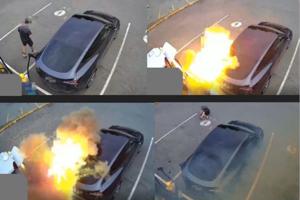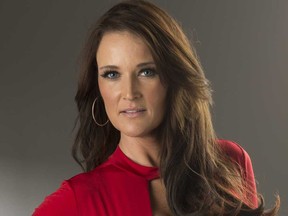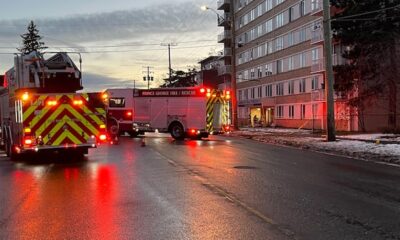Top Stories
Urgent Warning: EV Charging Station Explosion Prompts Safety Alert

UPDATE: A shocking incident at a fast-charging station in Hope, B.C. has led to urgent safety warnings for electric vehicle (EV) drivers. A provincial safety authority has confirmed that a man was injured after an electrical explosion occurred while he was using an unapproved charging adapter on October 9, 2024. The explosion happened back in August 2024, but the alarming details are only now coming to light.
Authorities report that the Tesla driver, who had used the adapter over 50 times without any prior issues, suffered minor injuries and damage to both his vehicle and the charging equipment. The explosion was caused by a short circuit between the charging cable and the non-approved adapter, resulting in an arc flash — a severe type of electrical explosion. The driver was thrown to the ground, sustaining scrapes and abrasions, while his vehicle bore burn marks, and the adapter was destroyed.
Technical Safety B.C. has emphasized the importance of using only approved charging hardware, as untested adapters can lead to dangerous incidents. The adapter in question was manufactured before March 19, when new safety standards were established in Canada. Importantly, it had not been subjected to the necessary testing, raising concerns for the safety of other EV drivers.
With the rise of electric vehicles, the need for compatible charging ports has become crucial. EVs can charge at different levels: Level 1, Level 2, and Level 3. Level 3 fast charging is where compatibility issues arise, as not all car manufacturers use the same ports. While many newer EV models now come equipped with native North American Charging Standard (NACS) ports, others still require adapters.
Just days ago, on October 20, Mercedes-Benz Canada announced that their electric vehicles would now have access to Tesla’s Supercharger network with their own NACS-to-CCS1 adapter. They emphasized that “this NACS-to-CCS1 adapter is the only adapter tested and certified for safety and compatibility.” Similarly, Honda Canada released its own adapter on October 6, advising drivers that using unapproved adapters could void vehicle warranties.
This incident has sparked a broader conversation about the dangers of using non-certified charging accessories. A U.S. dealership warned that unapproved adapters may not have the robust thermal sensors needed to prevent overheating, which can lead to melting components or even fire. The dealership’s blog post stated, “Choosing a high-quality, approved adapter ensures both safe charging sessions and long-term reliability.”
As the electric vehicle market continues to expand, the necessity for safety and compatibility becomes increasingly critical. Drivers are urged to prioritize using certified charging equipment to prevent accidents and ensure their vehicles remain under warranty.
What’s Next? EV drivers should remain vigilant and only use adapters that are explicitly approved by their vehicle manufacturers. As new standards emerge, ongoing education about charging safety will be vital for all EV owners. Stay tuned for further updates as authorities continue to investigate the incident in Hope, B.C. and its implications for the EV community.
-

 Politics1 month ago
Politics1 month agoSecwepemc First Nation Seeks Aboriginal Title Over Kamloops Area
-

 World5 months ago
World5 months agoScientists Unearth Ancient Antarctic Ice to Unlock Climate Secrets
-

 Entertainment5 months ago
Entertainment5 months agoTrump and McCormick to Announce $70 Billion Energy Investments
-

 Science5 months ago
Science5 months agoFour Astronauts Return to Earth After International Space Station Mission
-

 Lifestyle5 months ago
Lifestyle5 months agoTransLink Launches Food Truck Program to Boost Revenue in Vancouver
-

 Technology3 months ago
Technology3 months agoApple Notes Enhances Functionality with Markdown Support in macOS 26
-

 Lifestyle3 months ago
Lifestyle3 months agoManitoba’s Burger Champion Shines Again Amid Dining Innovations
-

 Top Stories2 months ago
Top Stories2 months agoUrgent Update: Fatal Crash on Highway 99 Claims Life of Pitt Meadows Man
-

 Politics4 months ago
Politics4 months agoUkrainian Tennis Star Elina Svitolina Faces Death Threats Online
-

 Sports5 months ago
Sports5 months agoSearch Underway for Missing Hunter Amid Hokkaido Bear Emergency
-

 Top Stories1 week ago
Top Stories1 week agoHomemade Houseboat ‘Neverlanding’ Captivates Lake Huron Voyagers
-

 Politics5 months ago
Politics5 months agoCarney Engages First Nations Leaders at Development Law Summit





















